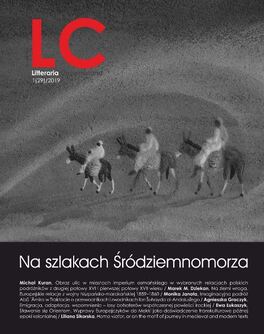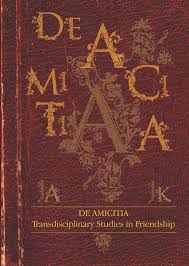travel writing as a field of research |
|
Vertical Divider
|
Travellers usually write about their experiences, producing a great variety of texts: travel diaries and memories, descriptions of the foreign lands, as well as narrations of their inward journeys that coincided with physical dislocation. Travel as in interrogation of identity and changes of self-perception and awareness that it brings about are important aspects of transcultural studies. One of topics that I studied more specifically is the Oriental journey since Romanticism to our times; I delved in biographies of explorers and converts keen to penetrate into the empty heart of the Desert. Some of them actually did it, and I mused on the experience of hajj (pilgrimage to Mecca) performed by Europeans. Others could only dream about the inaccessible heart of Arabia; such was the case of the Polish adventurer Wacław Rzewuski and the romantic poet, Juliusz Słowacki, who contributed greatly to his legend.
|
essays on the journeys of Europeans to the Orient
|
“Stawanie się Orientem. Wyprawy Europejczyków do Mekki jako doświadczenie transkulturowe późnej epoki kolonialnej” [“Becoming the Orient. European travels to Mecca as a transcultural experience of the late colonial period”], Litteraria Copernicana, no 1(29)/2019, p. 111-119. ISSN 1899-315X
DOI: http://dx.doi.org/1 0.12775/LC.2019.009 http://apcz.umk.pl/czasopisma/index.php/LC/article/view/LC.2019.009 The aim of this paper is to reflect on the European hajj (travel to Mecca) as a transcultural experience in the context of the late colonial period. The interpretation of the case of Lawrence of Arabia, proposed in the Orientalism by Edward Said, is taken for the starting point. This classical diagnosis is confronted with the narrations speaking about the travel into the heart of Arabia as a spiritual journey, read as a testimony of a progressive overcoming of the orientalization as a condition limiting, in the first place, the Western subject, unable of experiencing fully the orientalized reality. After the exploration of Richard Burton, the figures of the converts from the first half of the 20th century, such as Harry St. John Bridger Philby, Evelyn Cobbold and Muhammad Asad gradually achieve a deepened transcultural experience on the road to Mecca. |
|
"Friendships of the Desert. The Europeans in Arabia", De Amicitia. Transdisciplinary Studies in Friendship, Katarzyna Marciniak, Elżbieta Olechowska (eds.), Warsaw, Faculty of „Artes Liberales”, University of Warsaw, 2016, p. 189-199. ISBN 978-83-63636-58-6
| |||||||||


